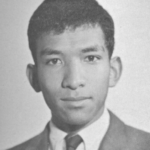
Dr. Lee W. Riley ~ Class of 1968
Arrived ~ 10/15/1949
Departed ~ 10/20/2022
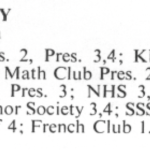
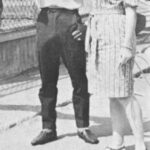
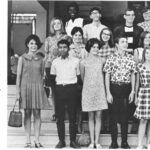
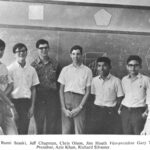
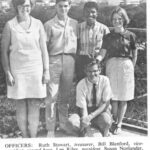
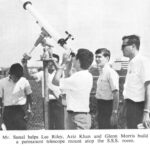
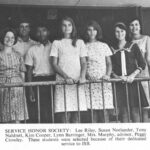
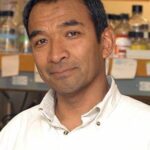
Gloria M. Riley-Schaaf ’76 lovingly wrote:
It is with a heavy heart that I bring the news of the passing of my brother, Dr. Lee W. Riley. Lee passed away this morning at 6:22 at Alta Bates Hospital in Berkeley California with his family. I am so grateful that I had the last 3 months of precious time with my brother as I cared for him in California as he was battling bladder cancer. He has touched the world in so many ways and will always be remembered and missed by many. I will post all information of upcoming services that will be held in his honor by the family and by the University of California, Berkeley, Department of Public Health so those who knew Lee can attend.❤️
UC Berkeley Online Master of Public Health
Berkeley Public Health is heartbroken to announce that Professor Lee W. Riley, world-renowned leader in the field of infectious diseases and vaccinology and friend and mentor to many, has died. We will post an obituary soon, and we keep those whose lives he touched close in our hearts. Dr. Riley will be greatly missed.
Oral history interview with Lee W. Riley
1997-Dec-29 – 1997-Dec-31
Lee W. Riley was born Hiroshi Satoyoshi: he spent his first ten years with his mother in Yokohama, Japan, then lived for a short time in a Japanese orphanage before being adopted by the Riley family, at which time he moved to Tachikawa, outside Tokyo, Japan.
The family moved to Bangkok, Thailand, in time for Riley to attend high school there. Like his biological parents, his adoptive father was African-American and his mother Japanese; Riley has two sisters who were adopted as well. In Riley’s early years his Japanese, schoolteacher grandfather had a great influence on his schooling, encouraging his questioning nature; living in Japan in the aftermath of World War II impacted Riley’s perspectives on life, as well as his Buddhist heritage and being multiethnic.
Riley attended an international high school in Bangkok, about which he talks at length, and had several influential teachers who stimulated his early interest in physics. Riley decided not to attend a Japanese university, but Stanford University instead; he wanted to become a physician and practice medicine in Bangkok.
Aware during the sixties of the countercultural movement and anxious about the draft at Stanford, Riley found his perceptions of the American presence in Southeast Asia changing. His growing interest in public health led him to spend a year in Japan after college. Riley chose to enroll the University of California, San Francisco, to pursue his medical degree; during his first year he undertook a clinical rotation in a missionary hospital in Thailand.
After deciding to shift from clinical medicine to public health he completed his internship and residency at Columbia University College of Physicians and Surgeons. He found interesting the differences between the types of medical conditions encountered in New York and those encountered in Thailand, and he entered the Epidemiologic Intelligence Service at the Centers for Disease Control and Prevention, where he used enteric pathogen fingerprinting technology to identify strains of Salmonella and identified E. coli 0157:H7 as the cause of an outbreak in Oregon.
Riley then accepted a postdoc in the Gary Schoolnik lab at Stanford to study enteropathogenic E. coli using molecular biology technology. Next he studied tuberculosis (TB) for two years in India and published a paper in Science identifying the invasion gene for TB. He then proceeded to an assistant professorship at Cornell University Medical College, where he worked on devising a technique to identify primary and reactivation TB. Through his understanding of the molecular basis for disease transmission he identified why a high percentage of drug users in New York City had a particular strain of tuberculosis. Riley’s interest in approaching biological questions from the standpoint of public health led him to work on developing a Salmonella vaccine for chickens.
From Cornell Riley accepted a position as professor of infectious disease and epidemiology at University of California, Berkeley, and he has since become Director of the Fogarty International Center Global Health Equity Scholars Program at University of California, Berkeley, where he continues to work on TB pathogenesis, drug-resistant Gram-negative bacterial infections, and global health focusing on infectious diseases of urban slums.
During the interview Riley discusses his acquisition of the scientific skills and knowledge necessary to accomplish his research goals; his belief in the need to make science understandable to the public and obstacles to that understanding; the scientific community’s response to his dual focus on epidemiology and pathogenesis; his desire to advance on the strength of his work rather than through self-advertising; and his relationship with other Pew Scholars.
He elaborates on his decision to work with Stanley Falkow and Gary Schoolnik at Stanford and explains how he collaborated with Schoolnik to establish the geographic medicine program at Stanford. He concludes his interview by describing how he attempts to balance career and life with his wife, Jesse Frances Furman, and three children.
Please send pictures (old and new), anecdotes, articles, stories, and tributes to isbeings at gmail dot com or visit us on Facebook at ISBeings
